Firing it up at Variety Jones
Words: Caitriona Devery
Photography: George Voronov
Words: Caitriona Devery
Photography: George Voronov
I am still thinking about the chicken liver parfait I had in Variety Jones a few weeks back. It was light, silky; hovering between rich and delicate, full-on meltiness with a subtle kick. It was so lush we were tempted to ask for teaspoons. Their oyster snack has been praised elsewhere and rightly so. Oysters pin attention to the present moment and cucumber adds the perfect back note. The Jerusalem artichoke skin was an intense version of itself, a caramelised, sticky bite full of texture and depth.
Being partial to a trout, we chose the sharing dish of a whole fish grilled over the live fire which is a central part of the kitchen at Variety Jones. Served with shitake mushrooms, garlic butter, gnocchi, leek and chanterelle fondue. The mushrooms were cute, the shitake holding their own, deliciously slippery in a buttery sauce that was luxuriant and herby all over the flaky fish. The dessert of apple cake, apple jam and brown butter custard was a winsome and satisfying end.
Variety Jones is a gutsy, charismatic spot where the wines are natural and the food makes you feel good. It was opened by Keelan Higgs and his brother Aaron just before Christmas. Keelan has earned his stripes and weathered storms in some of the top kitchens in Ireland over the past decade or more. You get the sense he is delighted to be doing things his way here.
He grew up around restaurants and from early on wanted to be a chef, aside from a brief “teen angsty phase” where he wanted to help people and considered becoming a psychologist. In a way that desire hasn’t gone away.
“The more years I put into cooking the more I realise food and cooking helps people as well,” Keelan says. “It brings people together and helps people communicate.”
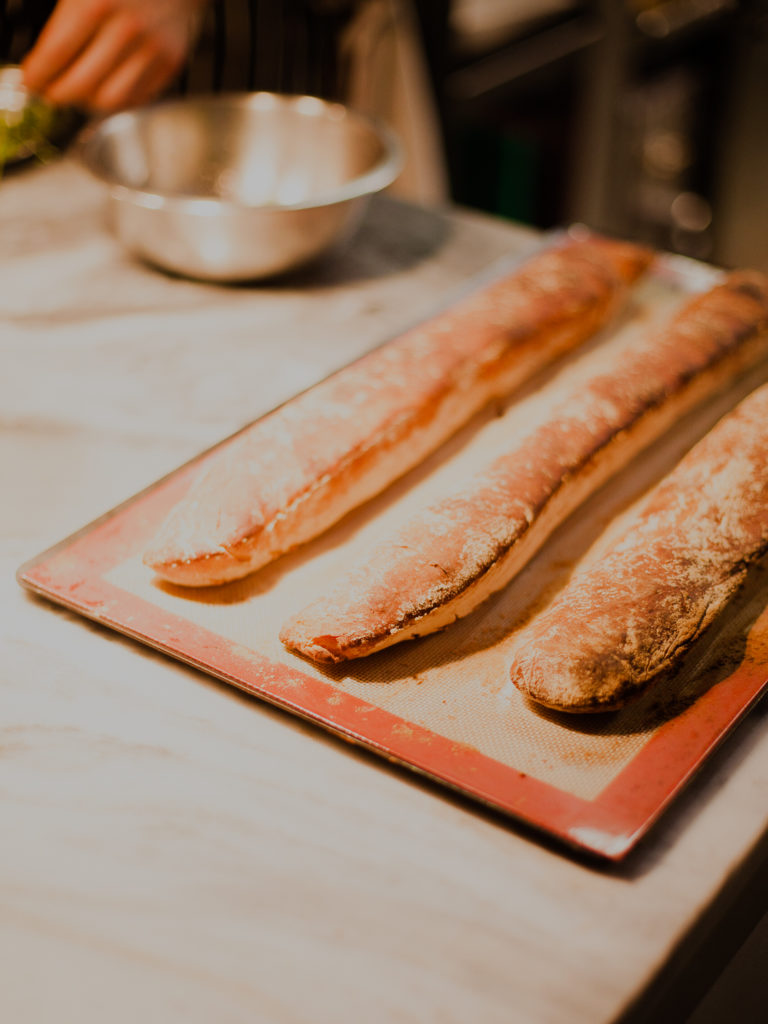
Keelan’s father ran restaurants and warned him off being a chef, but he was drawn to food and went to DIT to study Culinary Arts. A few months in Patrick Guilbaud as part of college was “the kick up the arse to know what real food is about and how high level it goes”.
Ross Lewis helped him find a placement in Italy, at the 2 Michelin star restaurant Arnolfo in the sunflower-surrounded Colle di Val d’Elsa in Tuscany. The restaurant was very much ingredient-led, creating dishes from what the local environment provided on a day by day basis.
“Every day the chef would arrive at 12.30pm from the market with whatever fish was there, courgettes with flowers, a baby suckling pig.”
After college he did a year at Chapter One. Next he was junior, sous and head chef in Locks, followed by a stint in the Greenhouse, then back to Locks. The second time around at Locks, Keelan teamed up with Conor O’Dowd as co-owner and Paul McNamara as silent partner. There were challenges; different priorities in terms of what they each wanted from the business. There was a falling out. Keelan left Locks for the second time with a bad taste in his mouth.
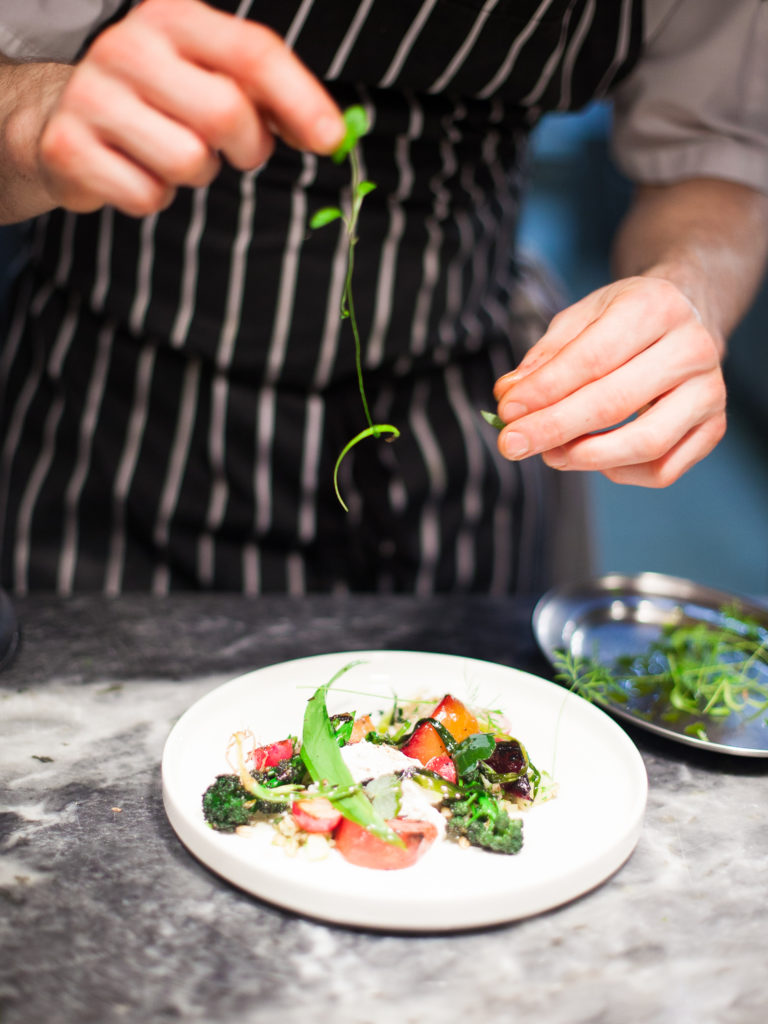
“It turned my life upside down. Aaron worked with me there, my little brother Cameron, my sisters had done marketing and branding. We’d put a lot of work into it.”
The experiences at Locks and across the Dublin food scene gave Keelan a strong sense of what he wanted – and didn’t want – in terms of restaurants. Independence was at the heart of this.
“I always wanted my own restaurant,” he confirms. “I make goals in my head, and have done all my life, in my career. By such and such an age… Like by 18 I want to be working in a top end restaurant, by 24 I want to work in Michelin star restaurant… By 32 I want to open a restaurant on my own. I think there’s something in me, and probably the rest of my siblings as well, that we don’t like working for other people.”
With Variety Jones he was clear on wanting freedom.
“I always felt that inner city was where we wanted to be. Right bang in the centre of town allows you to be a bit edgier, a bit more creative. If you’re in a residential area you’re stuck with Mary’s Caesar salad that she has every week that you can’t take off the menu.”
The menu is built for sharing. He says it was the way his family ate growing up, “There’s something ingrained in me, that likes to eat like that. It’s great way of getting people to relax, break down those barriers”. Initially, the idea of sharing dishes felt more Mediterranean than Irish to me, but Keelan convinces me that it’s an Irish way.
“It’s based on those principles of sitting round the table and enjoying each others’ company. If you take the trad session, the music is the medium to get people to communicate. I think food can be that same medium.”
The team here is close-knit and included Keelan’s brother Aaron who is integral to the whole mix. The two of them overhauled the premises in the run up to the opening. Keelan says “we worked in Locks before, but that was a different animal. It wouldn’t have happened without him here, putting the place together”.
In addition, they have sommelier Vanda Ivancic, who worked with Keelan at Luna and who Keelan says is “badass”. Her wine list has a lot of natural and organic wines and changes regularly. We loved the Tuffeau Brut Nature, a clean and crispy fizz. Keelan says, “it wouldn’t be the same without her. She makes super pairings with the dishes”.
Keelan stresses the importance of a strong team, “creative people who are passionate about what they do”. He’s wants to invest in people and keep them on board, saying “we want to bring others along with us to our next projects”. By that he means other restaurants or bars. He says, “thinking long term we want to bring more positive stuff to Dublin, more things that people enjoy, things that are real”.
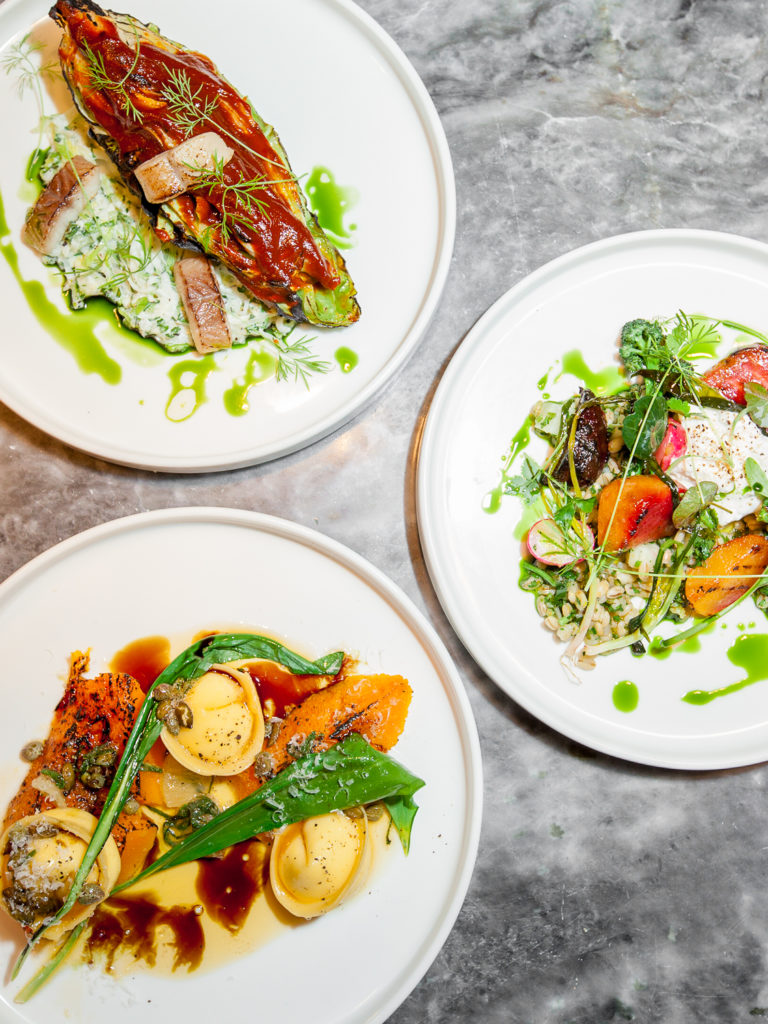
In spite of great reviews from almost all the national critics, he has a laid-back attitude towards the vagaries of the press. He admits it has an effect; the phone started hopping after Catherine Cleary’s review for instance. But he thinks hype can be a problem.
“People reading reviews, they come in with expectations. The battle’s already been lost. It’s been built up so much. You can’t live and die on what the critics say, we have to focus on our product and our customers.”
The food has a strong signature, confidently combining influences and styles. This assemblage is natural to Keelan and he sees what he does as Irish.
“I see Ireland as a melting pot at this stage of different cultures. I was rolling fresh pasta in Guilbaud’s before I ever went to Italy. Every person, every house is cooking a bowl of pasta every week, Thai, food from all over the world. If people in your average household are cooking that every week, how is that not Irish food? The pool of what Irish is just keeps getting bigger.”
Food, as part of culture, naturally evolves through adoption and mutation. He talks about the process of expanding repertoires.
“Take me growing up in Ireland, those things become natural things you cook with, natural flavours you work with in a kitchen, they form my tastes. That makes them a part of Irish cooking, because I’m Irish, I’ve learned to cook in Ireland, I’m cooking in Ireland, and these are the things I’m comfortable using. It’s like precedence in legal terms; it was used before then it’s amalgamated into law, and it’s the same with food. That is culture, it develops.”
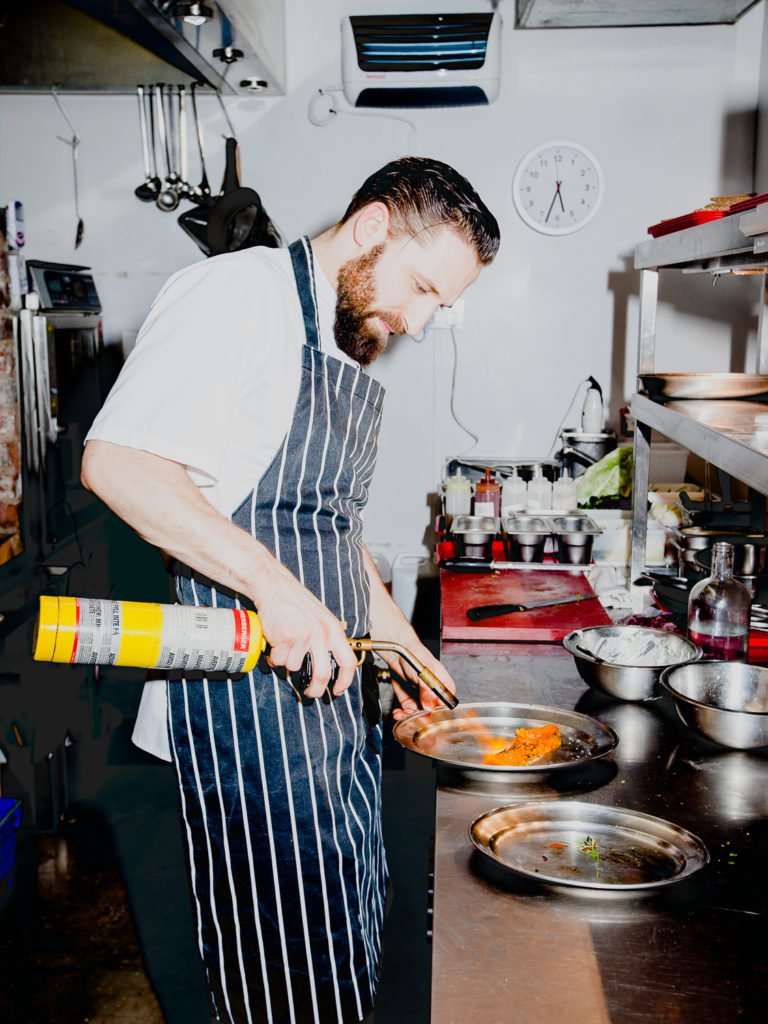
He thinks things have been evolving in interesting ways in Dublin recently. Chefs are at the heart of that.
“I felt when I was putting this together that there was a new wave coming and that we would be a part of that. Chef-driven restaurants are a good thing. I know there have been a few already, the likes of Bastible and Clanbrassil House and Forest Avenue. I think places need more personality and I think this place has my personality in it, and the personality of people who work here.”
I ask Keelan after working abroad how he was sure he wanted to open a restaurant here.
“This is my home,” he responds. “That’s why I wanted to set up a restaurant in Ireland. You need people to do that, to influence what’s going on here. People might say who does he think he is for saying that, but you’re a part of it, a part of the picture.”
I follow up asking Keelan what he thinks makes a good chef.
“I always say passion, love and conviction. You need to love it, you need to be able to leave your negativity, your personal shit at the door. When I get up in the morning and I come to work, there’s a burning inside me. I know it sounds a bit silly. But I need to get something done, I need to attack the day.”
He says a head chef should be able to lead by example.
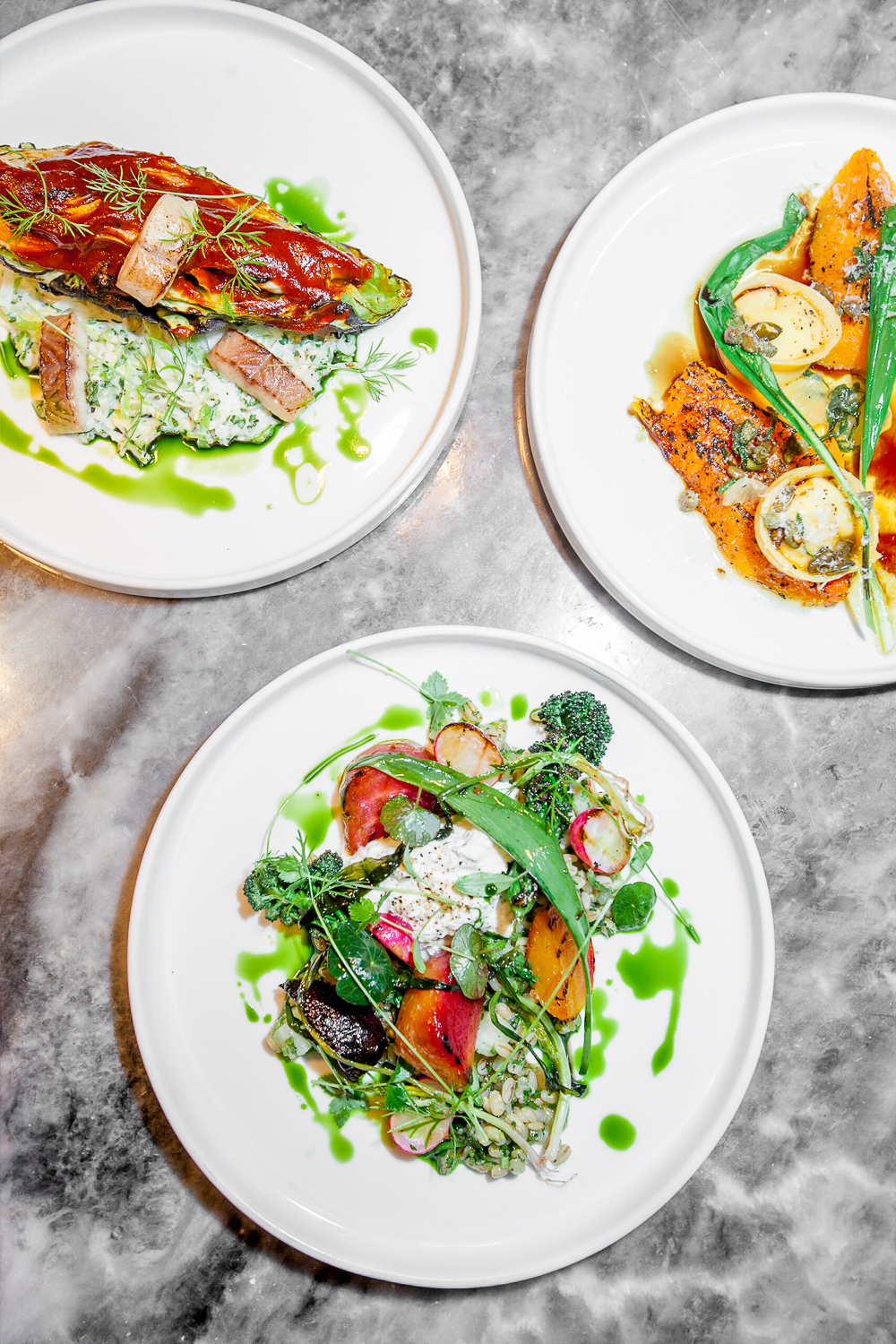
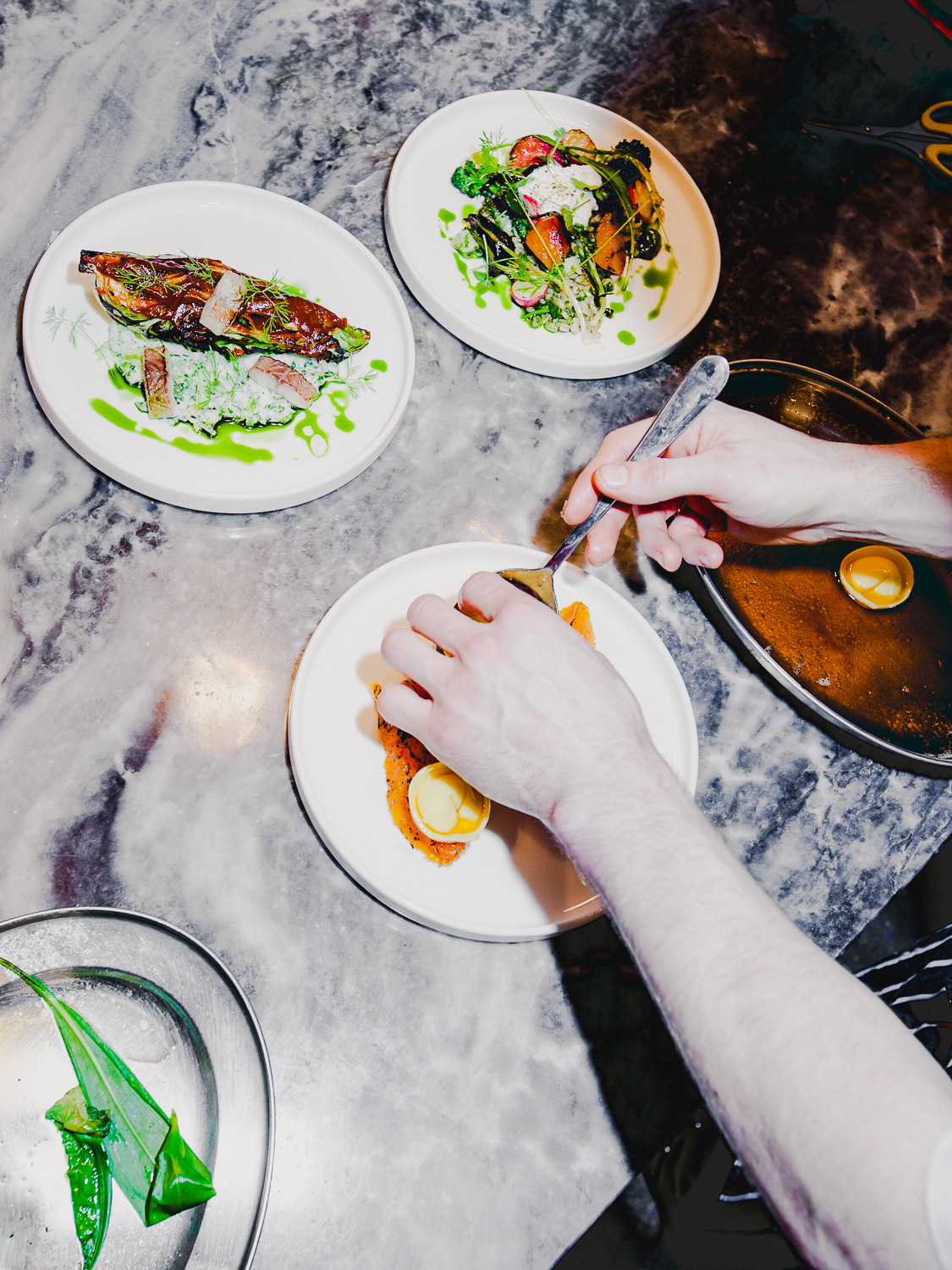
“I think I could go into any kitchen in the world and do a service. That’s what any serious chef in the world should be able to do. A head chef should be able to jump on any section in the kitchen and do it as good if not better than any one else.”
The chef profession is often considered to be in crisis in Dublin; there’s talk of a chronic shortage. Keelan think the problem is systemic.
“I think it’s bullshit. I think there’s a problem inherent in this industry where you’re expected to work to your own detriment, work 80 hours get paid nothing, and have no life. It’s the chef’s mentality of martyrdom, you have to wear it as your badge of honour. I don’t think there is a chef crisis, I think there’s a disparity between work done and work paid. The restauranteurs need to change the way they do business.”
He’s taking a novel approach to the finances of Variety Jones in the interests of fairness, “I pay everyone the same thing. We all get paid the same. If I’m hiring someone else, we have to look at it from a realistic perspective, will we have to do another service? I try not to do things cloak and dagger like, or under the table as I’ve seen in the industry. I don’t want to be involved in the same stuff that has pushed young chefs out. I know a restaurant where the pastry chef was getting paid €320 a week for 90 hours a week. He was so run down his fingernails were falling off. €320 a week. That’s a joke. Slave labour.”
There’s certainly a commitment here to do things in a straight up way. The emphasis on informality is refreshing especially with the food at this level.
“We want to create a place where people can feel at home and we want to enjoy what we’re doing. I don’t see why to get a top quality meal you have to have the tablecloths and dickie bows and pay an arm and a leg.”
Please, can I have more of that parfait?
[This article was first published in the summer 2019 issue of Char]
Twitter: @variety_jones






